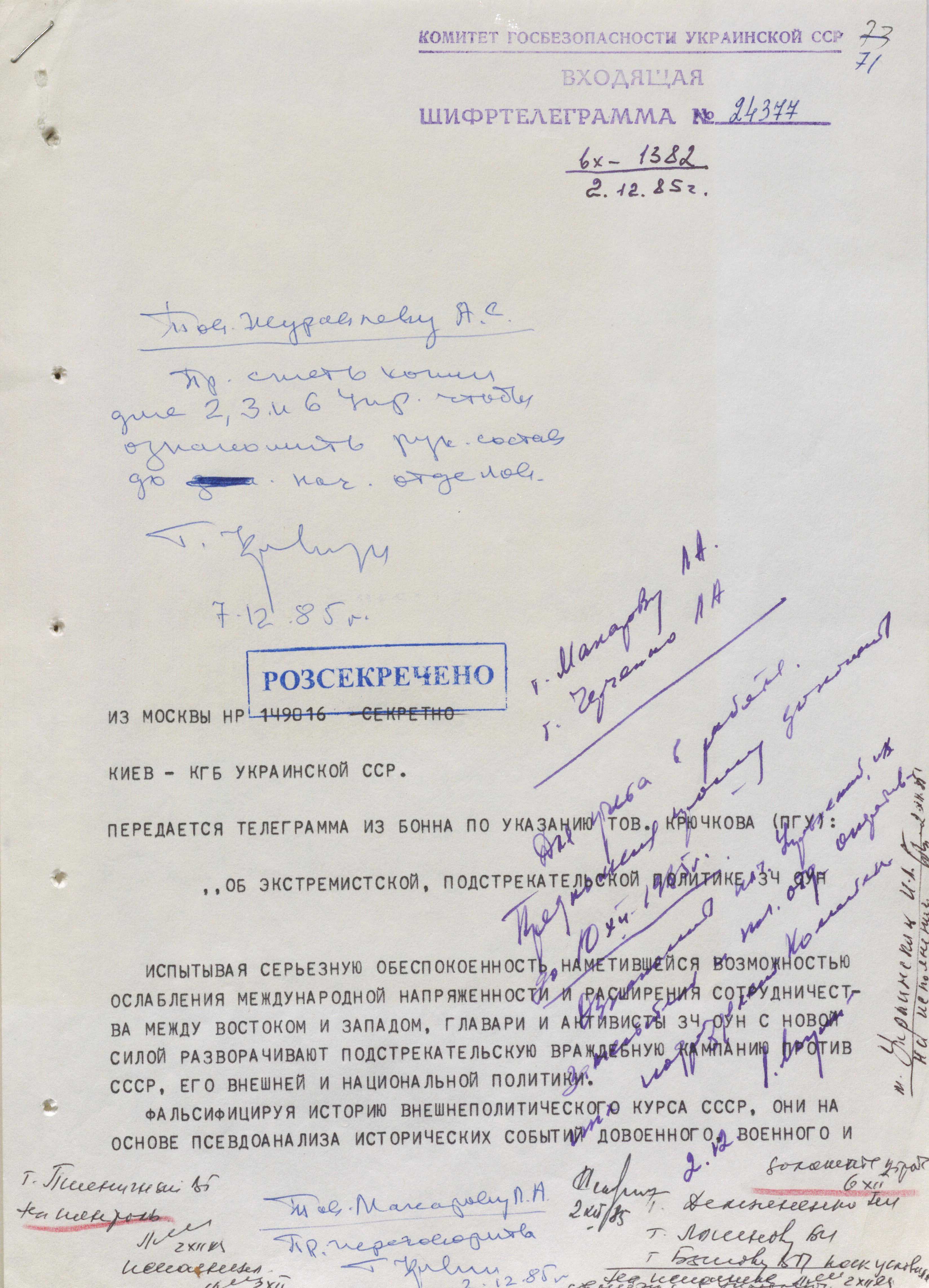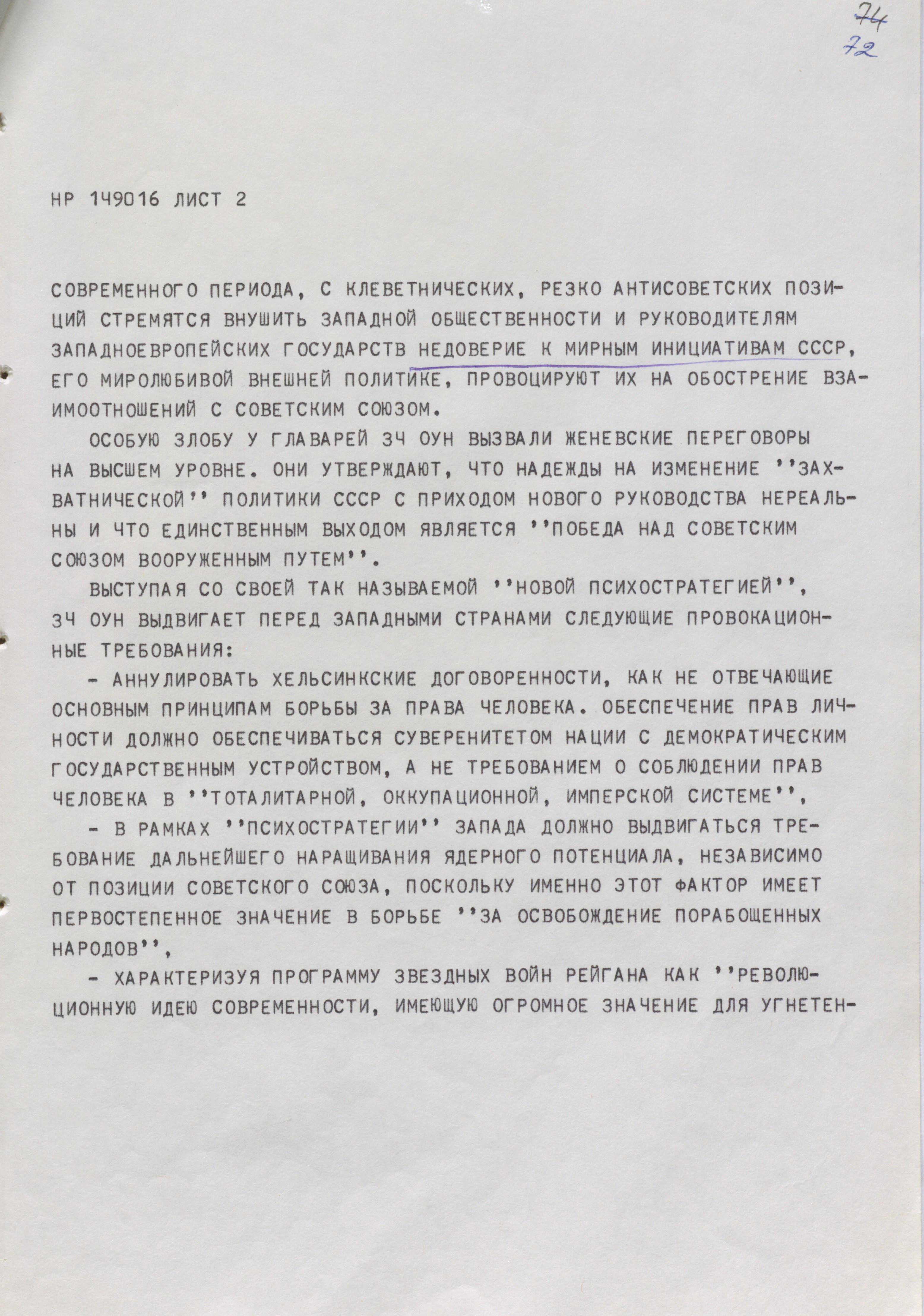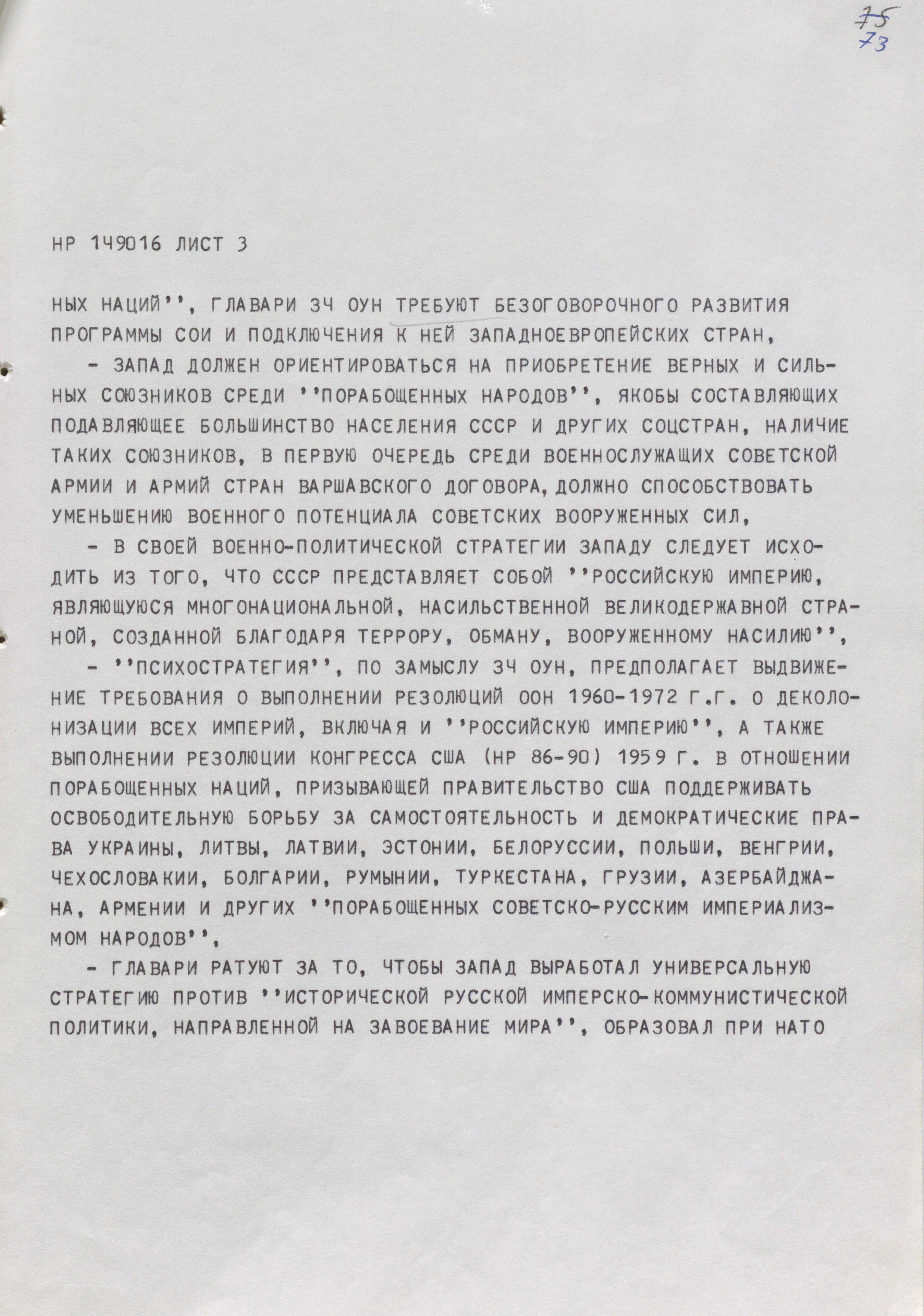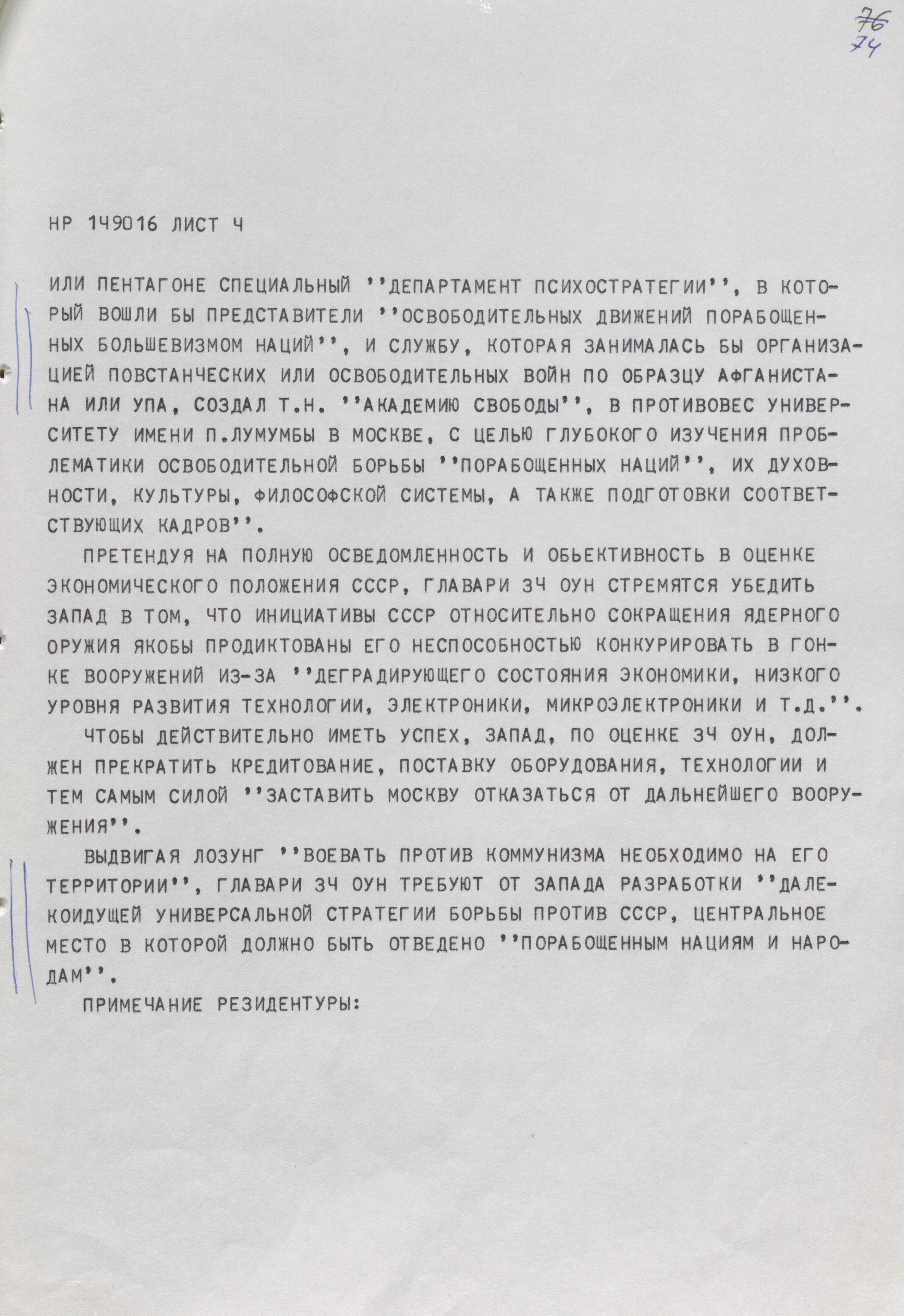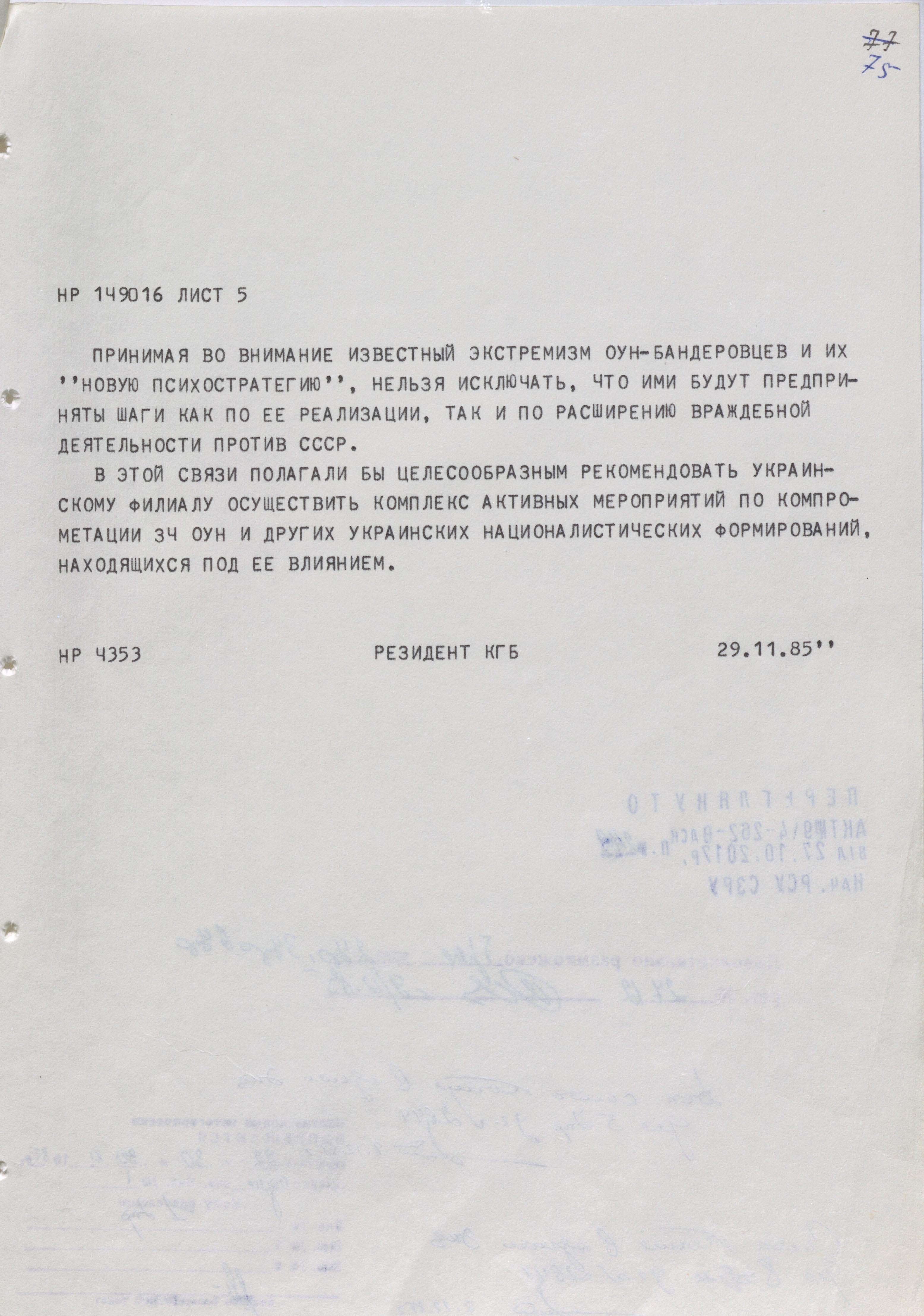The kgb’s Encrypted Telegram from Bonn
2/13/2025
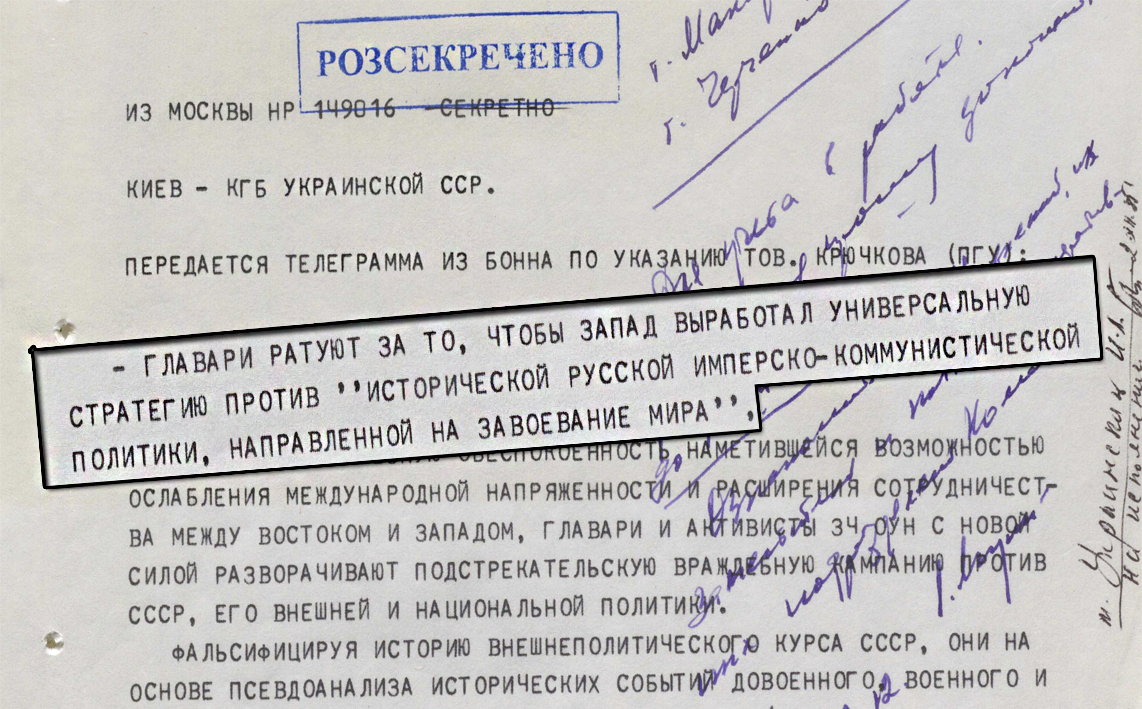
Declassified archival documents of the Foreign Intelligence Service of Ukraine repeatedly mention the meetings in Munich held by leaders of the Ukrainian national liberation movement to adjust the strategy and tactics of further struggle for restoration of Ukraine's independence. The ussr kgb residentura in Bonn tried to monitor such events and report them to moscow for appropriate action. A clear evidence of which of those events caused the greatest concern and irritation of soviet special services is the encrypted telegram dated November 1985.
After the Second World War, socio-political parties and organizations of Ukrainian emigrants continued their activities in the Federal Republic of Germany. Perhaps most of all – in Munich, where Stepan Bandera, Lev Rebet, Yaroslav Stetsko, Stepan Lenkavskyi, Mykola Kapustianskyi and other figures settled. kgb agents were regularly sent to monitor them and plan their assassination. Also, agents were infiltrated into the close environment of leaders of the OUN and other parties to find out their plans and intentions.
The kgb was especially interested in information about secret meetings, congresses, and conferences. Among the archival documents there are mentions of and agent reports on such events. Archival documents contain references and agent reports on such events. In particular, about the Third Broader Meeting of the OUN Foreign Center held in Munich in February 1946, where S. Bandera reported on previous activities and presented an “outline of a general plan for further activities”. They also discussed the international situation in the context of resolving the Ukrainian issue. The Second World War was characterized as a typical imperialist war for territories, markets, and raw materials. They discussed possible ways of putting pressure on the ussr to cause its collapse and liberation of the enslaved peoples.
In the following years, information about such events was also regularly sent to moscow. An example of the forms in which this was presented is the encrypted telegram entitled “On the Extremist, Inciting Policy of the OUN Foreign Units”. It was dated November 29, 1985 and signed by the kgb resident in Bonn. From moscow it was sent to Kyiv. It contains the following note: “The telegram from Bonn transferred on the instructions of comrade Kryuchkov (PGU).” (PGU – from russian pervoye glavnoye upravlenie – first main directorate [foreign intelligence] of the kgb of the ussr, the chief of which was Vladimir Kryuchkov – Transl.).
The encrypted telegram states that the leaders of the OUN Foreign Units “are launching an inciting hostile propaganda campaign against the ussr, its foreign and national policy with renewed vigor”, that they have developed a new strategy and are putting forward a number of demands to the West... “On the basis of pseudo –analysis of the historical events of the pre -war, wartime and modern periods, the document states, from the slander, sharply anti–soviet positions they seek to persuade the Western community and leaders of Western European countries to distrust the ussr’s peaceful initiatives, its peaceful foreign policy and provoke exacerbation of relations with the soviet union. Special anger of the OUN leaders was caused by Geneva negotiations at the highest level. They argue that hopes for changes in the “aggressive” policy of the ussr with a new leadership coming to power are unrealistic, and that the only way out is “victory over the soviet union by armed means.”
Further, the encrypted telegram states that the leaders of the OUN Foreign Units had developed a “new psycho-strategy”, based on which they put forward a number of demands to the Western countries in order to prevent the growing of the threat from the soviet empire.
Some of the demands are quite interesting from the point of view of today, namely:
– “to cancel Helsinki Agreements as such that do not meet the basic principles of human rights struggle. The guarantee of human rights should be ensured by the sovereignty of the nation with the democratic state system, not the requirement for the observance of human rights in the “totalitarian, occupying, imperial system”.
– Within the framework of the “psycho-strategy”, the West should demand further building up of the nuclear potential, regardless of the position of the soviet union, since this factor is of paramount importance in the struggle “for the liberation of enslaved peoples”...
– “In its Military- Political Strategy, the West should be guided by the fact that the ussr is a “russian empire, which is a multinational, violent imperialist country created by terror, deception, and armed violence.”
– According to the OUN Foreign Units, “Psycho-strategy” provides for putting forward the demands for implementation of the OUN resolutions of 1960-1972, aimed at decolonization of all empires, in particular, of “russian empire”, as well as the implementation of the US Congress Resolution (No. 86-90) 1959, in regard to enslaved nations, which urges the US government to support the liberation struggle for independence and democratic rights of Ukraine, Lithuania, Latvia, Estonia, Belarus, Poland, Hungary, Czechoslovakia, Bulgaria, Romania, Turkestan, Georgia, Azerbaijan, Armenia and other “peoples, enslaved by soviet-russian imperialism”.
– The leaders suggest that the West has developed a universal strategy against the “historical russian imperial-communist policy aimed at invading the world”, formed a special “Department of Psycho-strategy” with NATO or Pentagon, which would include representatives of “liberation movements of nations enslaved by bolshevism”, and a service that would organize insurgent or liberation wars on the model of Afghanistan or UPA, created the so-called “Academy of Freedom” in contrast to the P. Lumumba University in moscow, in order to study the problems of the liberation struggle of “enslaved nations”, their spirituality, culture, philosophical system, as well as the preparation of appropriate personnel.
– Claiming full awareness and objectivity in assessing the economic situation in the ussr, OUN leaders seek to persuade the West that the ussr’s initiatives to reduce nuclear weapons are allegedly dictated by its inability to compete in the arms race due to the “degradation of the economy, low level of development of technology, electronics, microelectronics, etc”. According to OUN, in order to truly be successful, the West should stop supplying equipment, technology, and thus “force moscow to give up further arms race.”
– Putting forward the slogan “communism should be fought in its territory”, the leaders of the OUN Foreign Units demand from the West to develop a “far-reaching universal strategy for struggle against the ussr, the central place in which should be assigned to “enslaved nations and peoples”.
Therefore, it was about guaranteeing security in Europe and the world, about the threats to this security from the ussr, warnings to the world public, partly quite unexpected, sharp and categorical, which were perceived differently. Some did not take them too seriously and believed that Ukrainian representatives were exaggerating, while others, represented by the kgb and the kremlin leadership, saw a threat to themselves from these emigration centers. In view of this, the encrypted telegram contains the following conclusion: “Recommend the Ukrainian branch to take a set of active measures to compromise the OUN Foreign Units and other Ukrainian nationalist formations under its influence”.
Over the years, time has put the necessary emphasis in this rhetoric and confrontation. But the problems have not disappeared. Therefore, it is necessary to draw conclusions from the past.
(Source: FISU. – F. 1. – Case 13091. – Vol. 5. – P. 71–75).
